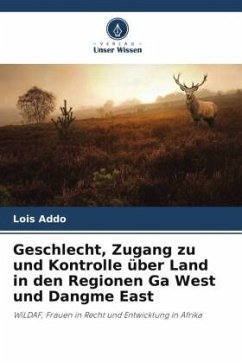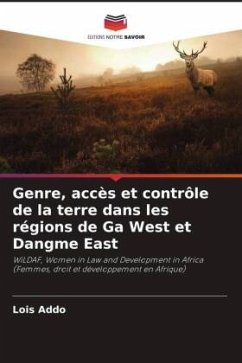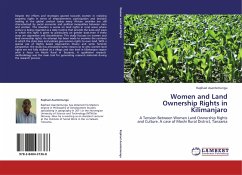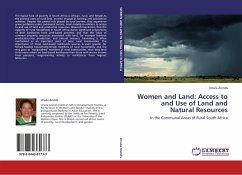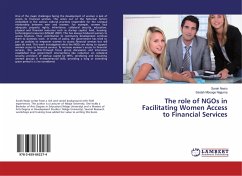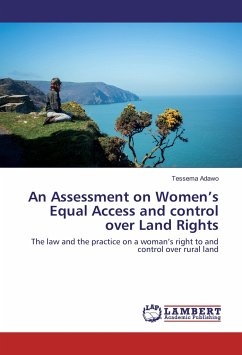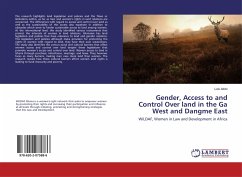
Gender, Access to and Control Over land in the Ga West and Dangme East
WiLDAF, Women in Law and Development in Africa
Versandkostenfrei!
Versandfertig in 6-10 Tagen
24,99 €
inkl. MwSt.

PAYBACK Punkte
12 °P sammeln!
The research highlights land legislation and policies and the flaws or limitations within, as far as men and women's rights in land relations are concerned. The differences with regard to access and control over land as well as the sustainability of this access also expatiate in addition to obstacles which serve to hinder sustainable access to land among women. At the international level, the study identified various instruments that protect the interests of women in land relations. Ghanaian has land legislation and policies that have relevance to land and gender relations. This legislation an...
The research highlights land legislation and policies and the flaws or limitations within, as far as men and women's rights in land relations are concerned. The differences with regard to access and control over land as well as the sustainability of this access also expatiate in addition to obstacles which serve to hinder sustainable access to land among women. At the international level, the study identified various instruments that protect the interests of women in land relations. Ghanaian has land legislation and policies that have relevance to land and gender relations. This legislation and policies although make provision for protecting the rights of women with regard to land, they have their own weaknesses. The study also identifies the various social and cultural barriers that affect women access and control over land despite these legislations that promote women's access and control over land. Women access to land in Ghana through purchase, inheritance, marriage, and lease. They however faces so many barriers, making man owe more land than women. The research reveals how these cultural barriers affect women land rights is leading to food insecurity and poverty.




